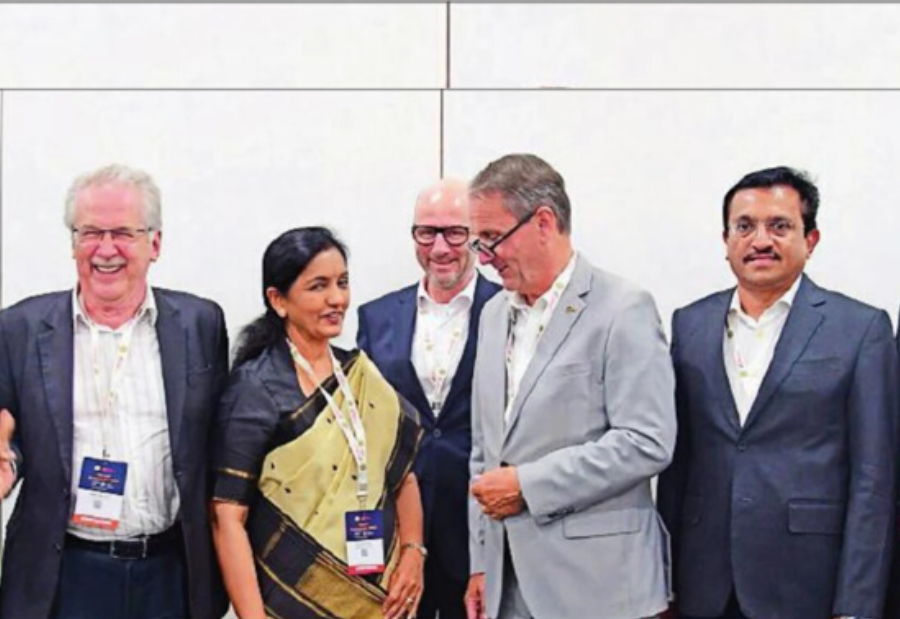The largest IT outsourcers are American businesses. Additionally, they control the creation of global capability centers, or GCCs, in India. In average, businesses in continental Europe are more hesitant to leave the European Union territory. However, there are a few notable outliers, many of which are German. In India, Mercedes-Benz, Bosch, Siemens, Deutsche Bank, and Continental have all established sizable GCC companies that have developed over time and are now leading international projects and performing innovative work. Another incredible tale is if, as some claim, SAP’s India center qualifies as a GCC. Last month, Lufthansa said that it will partner with Infosys to establish a GCC. Last year, BMW and Tata Technologies established a joint venture to provide commercial IT and automotive software.
According to Achim Burkart, consul general of the German Consulate in Bengaluru, many other people are also paying special attention to India these days, particularly small and medium-sized businesses, or Mittelstand as the Germans refer to them.“There were a lot of prejudices about this country, and that made it difficult to attract companies here. But today, India is very much in the minds of German companies. It’s also because it’s German govt strategy – India is a strategic and a globally important partner to us. We have high-ranking delegations on a regular basis. Trade is improving. And when I visit German companies here, they say, yes, perhaps we started as a back office, but now we take pride in the fact that we add value to the whole company worldwide,” Burkart told us during an interaction we had with German govt and company representatives the other day.
In April, a 40-member Bavarian defense and aerospace team will travel to India to explore potential prospects, according to John Kottayil, executive director of the State of Bavaria India Office.
According to Stefan Halusa, director general of the Indo-German Chamber of Commerce, the chamber and KPMG conduct an annual German Indian business perspective, which reveals a sharp rise in interest in conducting business in India among German firms of all sizes and in a variety of industries. Additionally, there has been a significant surge in investment to create GCCs, even though the primary motivation for investing in India is to produce for the domestic market. “In the past, only 17% of the companies said GCCs and availability of talent were reasons for them to invest in India, but the expectation towards 2029 is that this will go up to 35%,” Halusa said. Furthermore, a growing number of businesses are stating that political stability and the availability of highly skilled workers will be increasingly crucial considerations in the future, even though labor costs remain a significant element in this GCC investment.
Mature German GCCs are already drawn to this area primarily because of the top talent. One of the cutting-edge tech projects being undertaken here, according to Prashanth Doreswamy, CEO for India at auto parts manufacturer Continental, is an attempt to use artificial intelligence (AI) to create synthetic data on driving conditions worldwide. This data will be used to demonstrate the efficacy of, say, newly developed autonomous mobility features. The time and money presently spent physically testing cars in various settings will be greatly reduced as a result.
According to Kalavathi GV, head of the global development center at medical tech company Siemens Healthineers India, the center here completed the engineering and development of an AI companion that significantly increases radiologists’ productivity worldwide and cuts down on the amount of time oncologists need to plan radiotherapy.
Get workers, engrs, scientists to work together
Some of the people we spoke with also mentioned that removing some of the ambiguities and obstacles around transfer pricing and trade procedures might speed up the development of commercial connections. India may learn from Germany on how diverse levels of knowledge—skilled workers, engineers, and scientists—cooperate, according to Hubert Reilard, managing partner of Comono Advisory. “This is formalised in Germany. And in my opinion, it is the core of German success after the World War,” he said.
Also read: Viksit Workforce for a Viksit Bharat
Do Follow: The Mainstream formerly known as CIO News LinkedIn Account | The Mainstream formerly known as CIO News Facebook | The Mainstream formerly known as CIO News Youtube | The Mainstream formerly known as CIO News Twitter
About us:
The Mainstream formerly known as CIO News is a premier platform dedicated to delivering latest news, updates, and insights from the tech industry. With its strong foundation of intellectual property and thought leadership, the platform is well-positioned to stay ahead of the curve and lead conversations about how technology shapes our world. From its early days as CIO News to its rebranding as The Mainstream on November 28, 2024, it has been expanding its global reach, targeting key markets in the Middle East & Africa, ASEAN, the USA, and the UK. The Mainstream is a vision to put technology at the center of every conversation, inspiring professionals and organizations to embrace the future of tech.




